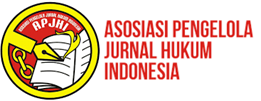Position of Resolving Human Rights Violations through The Truth and Reconciliation Commission (TRC) Mechanism in Indonesia
DOI:
https://doi.org/10.70193/ijlsh.v2i2.193Keywords:
Truth and Reconciliation Commission (TRC), Resolving Human Rights Violations, Restorative JusticeAbstract
Resolving human rights violations in Indonesia is a complex issue, considering the many cases of violations that occurred during the conflict, especially during the New Order period. One of the mechanisms proposed to resolve the issue of human rights violations is through the establishment of a Truth and Reconciliation Commission (TRC). The TRC functions to reveal the truth about past human rights violations, provide opportunities for victims to obtain justice, and encourage the process of social reconciliation. This abstract aims to examine the position of the TRC in the context of resolving human rights violations in Indonesia, both from a legal perspective, its role in recovering victims, and the challenges faced in its implementation. This research also highlights the difference between settlement through the judiciary and settlement through th , as well as the extent to which the TRC can create restorative justice without ignoring applicable legal principles. Through this analysis, it is hoped that a deeper understanding can be obtained regarding the potential and limitations of the TRC mechanism in realizing resolution of human rights violations in Indonesia.
Downloads
References
Adhyanti, Hijrah. 2012. "Criminalization Policy Against Child Pornography in Legislation". Amanna Gappa Journal of Legal Studies 20 (3): 259-376.
Akmal, Saiful. Self Government (Self Government). Banda Aceh: Padebooks.
Amin, Safrudin, et al. 2019. Citizenship in Indonesia: Struggle for Rights, Identity and Participation. Jakarta: Indonesian Torch Library Foundation.
Asy'ari, Syukri, MeyrindaRahmawaty Hilipito, and Mohammad Mahrus Ali. 2013. Model and Implementation of Constitutional Court Decisions in Legal Review (Study of Decisions 2003-2012). Constitutional Journal 10 (4): 675-708.
Faisal, Fatma. 2019. The Existence of Human Rights Courts on the Enforcement of Human Rights in the Judicial System. Gorontalo Law Review 2 (1): 33-48. https://doi.org/10.32662/golrev.v2i1.559.
Firdiansyah. 2016. Roles and Expectations of Victims in Resolving Past Serious Human Rights Violations. jurnal Human Rights 16 (2): 1-36.
Hakim, Abdul Aziz. 2014. The Concept of Transitional Justice from an Islamic Perspective. Journal of Comparative Law 2 (1): 191-213.
Mainur, Rival Anggriawan. 2016. Mechanism for Resolving Past Serious Human Rights Violations in Indonesia. PhD Thesis. Indonesian Islamic University.
Marzuki, Suparman 2010. "The Politics of Human Rights (HAM) Law in Indonesia in the Reform Era. Study of Human Rights Law Enforcement in Resolving Past Human Rights Violations." Dissertation. https://dspace.uii.ac.id/handle/123456789/9424.
Maringka, J.S. 2022. Prosecutorial Reform in the National Legal System. Jakarta: Sinar Graphics.
Muhammad, H.A. 2024. Religion and Social Conflict: A Study of the Indonesian Experience. Bandung: Marja.
Resolving Serious Human Rights Violations Through National and International Courts and the Truth and Reconciliation Commission." Mercatorian Journal 11 (1): 90-126. 10.31289/mercatoria.v11i1.1509.
Resolving Human Rights Violations as an Effort to Uphold Human Rights." Journal of Law and Citizenship 6 (6): 31-40. https://doi.org/10.3783/causa.v6i6.6292.
Setiyanta, Pentadi Teguh. 2023. Reconstruction of Restorative Justice Value-Based Medical Dispute Resolution Regulations". Sultan Agung Islamic University.
Taum, Y.P. 2015. ""Violence and Conflict in Papua: Roots of the Problem and Strategies to Overcome Them." Journal Education 19 (1): 1-13.
Tenriawaru, Wisnu Murtopo Nur Muhammad, Yanuar Adi Nugroho, Baniara Mangapul Sinaga, and Dimas Pranowo. 2022. Truth and Reconciliation Commission in Enforcement Efforts for Serious Human Rights Violations in Law no. 27 of 2004. Indramayu: CV. Adanu Abimata..
Tumbo, Asher. 2020. The Concept of Transitional Justice in Handling Serious Human Rights Violations in Indonesia. Paulus Law Journal 1 (2): 72-87. https://ojs.ukipaulus.ac.id/index.php/plj/article/view/473.
Yunanto, Sri, and Angel Damayanti. 2021. Towards a Safe, Peaceful and Democratic Indonesia: Challenges, Policy and Institutional Design. Jakarta: UM Jakarta Press.
Downloads
Published
How to Cite
Issue
Section
License
Copyright (c) 2025 International Journal of Law, Social Science, and Humanities

This work is licensed under a Creative Commons Attribution 4.0 International License.














